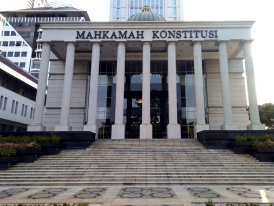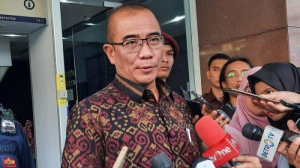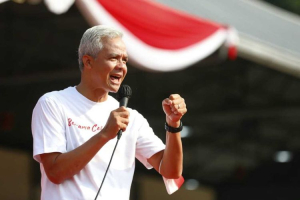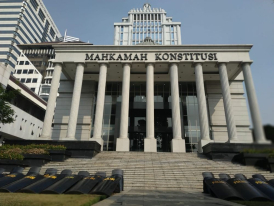Anwar Usman and 8 other judges stated to have violated ethical standards in the examination of the minimum age for presidential and vice-presidential candidates case
The Constitutional Court's Honorary Council deems nine Constitutional Court judges in violation of ethical standards for their handling of a case regarding the minimum age for presidential and vice-presidential candidates.
The Honorary Council has decided that the nine judges committed ethical breaches when they ruled on the case (Number 90/PPU/XXI/2023) related to the minimum age requirement for presidential and vice-presidential candidates.
The judges involved are part of the Constitutional Court's tenure for 2023-2028, and their decisions have raised ethical concerns, resulting in collective verbal reprimands.
The judges include Anwar Usman, Meanwhile, the other eight judges include Arief Hidayat, Wahiduddin Adams, Suhartoyo, Manahan M. P. Sitompul, Enny Nurbaningsih, Daniel Yusmic Pancastaki Foekh, and M. Guntur Hamzah.
The violations stemmed from the judges allowing internal information to be publicly disclosed and, in some cases, overlooking potential conflicts of interest. Their decisions were also criticized for lacking careful and persuasive argumentation.
The Honorary Council emphasizes that these issues might not have arisen if the judges had maintained a culture of mutual respect and equality among themselves.
The alleged leak of information from the Council's meetings was attributed to negligence, making the nine judges responsible for the breach of propriety and decorum.
The Council's verdict was divided into four parts, with the first part related to Anwar Usman, the Chairman of the Constitutional Court, and the second part concerning Saldi Isra, the Deputy Chairman.
The third part pertained to Arief Hidayat, another Constitutional Court judge, while the final part addressed the nine judges as a collective entity.
The Court's decision regarding case number 90 has sparked controversy as it is seen as a deliberate effort to facilitate Solo Mayor Gibran Rakabuming Raka's candidacy for the upcoming presidential election, given the lower age requirement.
Prior to the Constitutional Court's ruling, Article 169(q) of the 2017 Election Law stipulated a minimum age of 40 for presidential and vice-presidential candidates. The Court introduced an additional clause that considered individuals who had served as regional heads eligible, allowing Mayor Gibran, aged 36, to run for president.
Tag
Already have an account? Sign In
-
Start reading
Freemium
-
Monthly Subscription
30% OFF$26.03
$37.19/MonthCancel anytime
This offer is open to all new subscribers!
Subscribe now -
Yearly Subscription
33% OFF$228.13
$340.5/YearCancel anytime
This offer is open to all new subscribers!
Subscribe now






